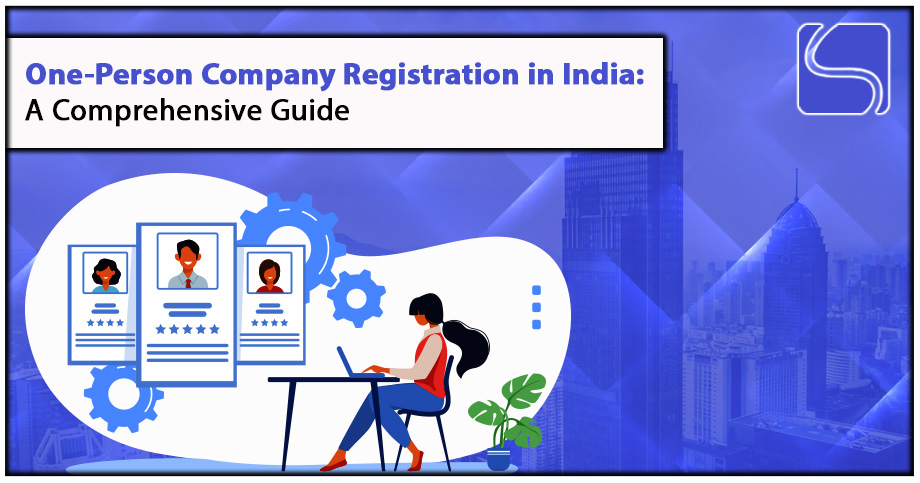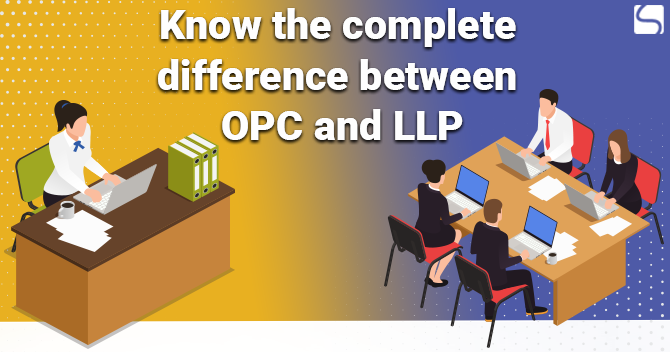Advantages of One Person Company in India – An Overview

Karan Singh | Updated: Oct 11, 2022 | Category: One Person Company
OPC, or One Person Company, was introduced in India through the Companies Act of 2013, a new concept which brought great relief to many entrepreneurs. As per Section 2(62) of the Companies Act, 2013, One Person Company or OPC is a company consisting of only a single person as an exclusive member. In simple terms, it’s a company registered & maintained by one person. This type of Company is best for those who want to be sole entrepreneurs. Sole Proprietorships offer the same benefit. However, unlike Sole Proprietorships, One Person Company offers limited liability & the status of the individual entity, along with a better standing in the market. In this blog, we will discuss the advantages of One Person Company in India.
Table of Contents
What are the Primary Features of One Person Company in India?
Before we discuss the advantages of One Person Company in India, let’s know various features of One Person Company:
- A person or an individual who registers One Person Company is not eligible to register more than one OPC;
- The memorandum of One Person Company must indicate the person’s name other than the subscriber, with his or her prior written consent in the prescribed form, who will become an OPC member when the subscriber dies or is incapacitated to contract;
- A Company may be an OPC which requires only a single person as a subscriber to establish a Company and such a Company will be treated under the Companies Act[1] as a Private Company;
- The nominee to the memorandum of OPC shall not be eligible to become a nominee for more than one such Company.
Underlying the Primary Advantages of One Person Company in India
The following are the advantages of One Person Company in India:
- Adequate Safeguard: In case of disability or death of the sole individual, it should be provided through the appointment of another individual as a nominee director. On the death of the original Director, the nominee director will manage the Company’s affair till the date of transmission of shares to the legal heirs of the demised member.
- Overall Control of the Company with the Single Owner: This leads to quick decision-making & execution. Yet he or she can appoint as many as 15 directors in the One Person Company for administrative functions without giving any share to them.
- Flexibility in Tax and Savings: In a One Person Company, it is possible for a company to make a valid contract with its Directors or Shareholders. This means as a Director; you can get remuneration; as a lessor, you can get rent; as a creditor, you lend money to your Company & earn interest, Rent, remuneration & interest of Directors are deductible expenses which reduce the Company’s profitability and ultimately bring down the taxable income of your business.
- Limited Liability: This is one of the main advantages of One Person Company. Unlike Private Limited and Public Limited Company, the concept of limited liability of OPC in India implies that the member’s liability will be up to the extent of their share in the Company. In an OPC or One Person Company, one person holds the entire share & has complete authority over authority over the business operation. So, it can be elucidated that the person’s liability will be to the extent he or she has invested in the business.
- Credit Rating: One Person Company with bad credit may even get the loan. The credit rating of One Person Company will not be material if the rating of One Person Company is as per norms.
- Easy Funding: One Person Company can raise funds through venture capital, angel investors, financial institutions, etc. A One Person Company or OPC can raise funds, thus graduating itself to a Private Limited Company.
- Minimum Requirements: This is also one of the big advantages of One Person Company in India. Because it requires the following:
- Minimum 1 Director;
- Minimum 1 Shareholder;
- Minimum 1 Nominee;
- The Shareholder & Director can be the same person;
- Letters OPC to be suffixed with the name of OPCs to differentiate it from other companies.
- Burden of Compliance: An OPC includes the definition of a Private Limited Company given under Section 2 (68) of the Companies Act. Hence, a One Person Company will be required to comply with provisions applicable to Private Companies. However, One Person Companies have been provided with a number of exemptions & therefore have a lesser compliance burden.
- Benefits Under Income Tax Law: Any remuneration paid to the Director will be allowed as a deduction in accordance with Income Tax Law, unlike Proprietorship. Other benefits of presumptive taxation are also available subject to Income Tax Act.
- Transferability of Shares: This is also one of the primary advantages of One Person Company. One Person Company has only one shareholder. The issue of transferring a portion of the share doesn’t arise at all because if it’s done, then the Company will cease to be a single-person company. Transferring all the shares is also not practicable as it will change the overall structure of the Company as the Company’s owner is changing. The issue has not yet been dealt with, and understanding of the law may provide us with the explanation that in a One Person Company, the transfer of shares is not allowed.
Conclusion
So, it is concluded that registering this Company offers many advantages of One Person Company, as we discussed above. A One Person Company can only be registered as a Private Limited Company. All provisions that apply to a Private Company will exist in One Person Company unless it is excluded from the concerned Act or Rules.














